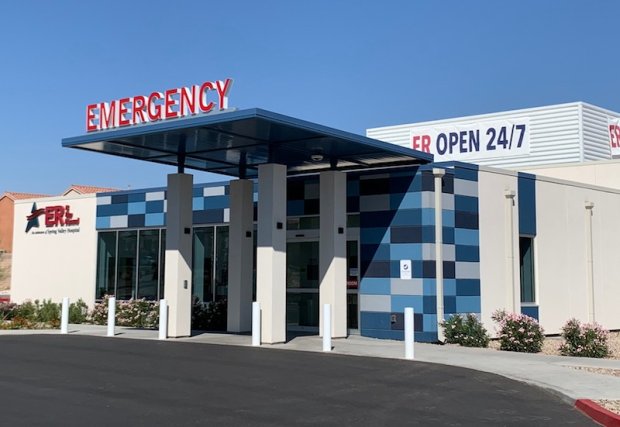Monoclonal Antibody Treatment for COVID-19 Now Available

Goal is to reduce symptoms and hospitalizations for high-risk individuals. Patients must meet strict criteria.
COVID-19 monoclonal antibody (MAb) therapy drugs authorized by the FDA for emergency use are now available as an intravenous therapy.
"This is a safe infusion of antibodies that will directly attack the virus before your body has fully made its own antibodies," explained Patrick Olivieri, MD, Medical Director of the ER at Blue Diamond. "The goal of this therapy is to help temper symptoms, prevent hospitalizations and reduce mortality and morbidity."
One MAb therapy uses casirivimab and imdevimab from Regeneron administered together to treat mild to moderate cases of COVID-19. The other MAb therapy is Eli Lilly’s bamlanivimab. Both therapies take approximately one hour to infuse, followed by monitoring for any side effects for another hour.
How to Receive Treatment
Criteria for therapy follows strict parameters. Potential recipients must:
- Have and show a documented positive COVID-19 test that can be scanned or included in the medical chart
- Have a high risk for progressing to severe COVID-19
- Not require any additional interventions, such as oxygen therapy or hospitalization
- Meet certain high-risk criteria* to qualify for the treatment
Those who meet the criteria can arrive as an ER visit for treatment.
"We want to be as flexible as possible to meet the patients’ needs," explained Dr. Olivieri. "We began offering this in late November after it received emergency use authorization. This MAb therapy helps reduce patients’ viral loads, the severity of symptoms and, hopefully, hospitalizations. It’s a painless, easy two hours and the side effects are typically limited to a rash or itchiness, which is what we are monitoring."
*The FDA defines high risk as patients who meet at least one of the following criteria:
- Have a body mass index (BMI) ≥35
- Have chronic kidney disease
- Have diabetes
- Have immunosuppressive disease
- Are currently receiving immunosuppressive treatment
- Are ≥65 years of age
- Are ≥55 years of age AND have cardiovascular disease, or hypertension, or chronic obstructive pulmonary disease/other chronic respiratory disease
- Are 12 – 17 years of age AND have a BMI ≥85th percentile for their age and gender based on CDC growth charts; OR have a sickle cell disease; OR a congenital or acquired heart disease; OR a neurodevelopmental disorder, for example, cerebral palsy; OR a medical-related technological dependence, for example, tracheostomy, gastrostomy, or positive pressure ventilation (not related to COVID-19); OR asthma, reactive airway or other chronic respiratory disease that requires daily medication for control
